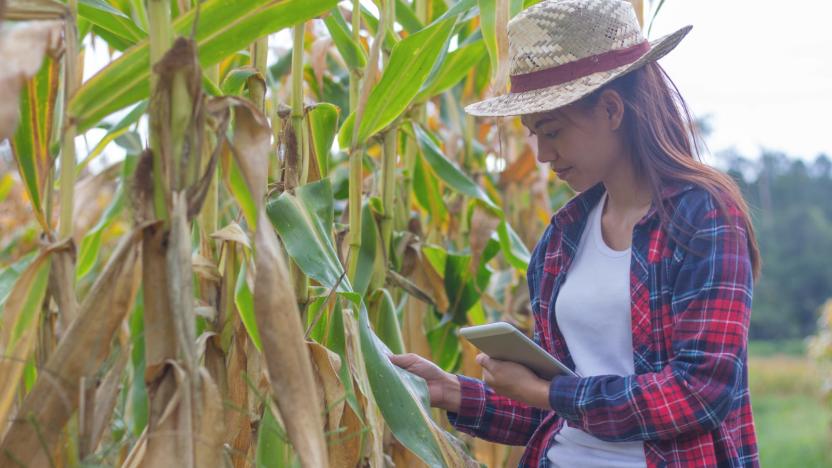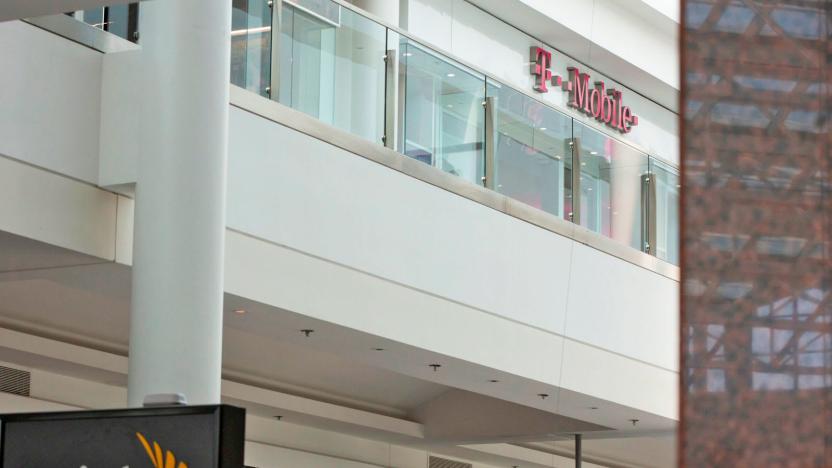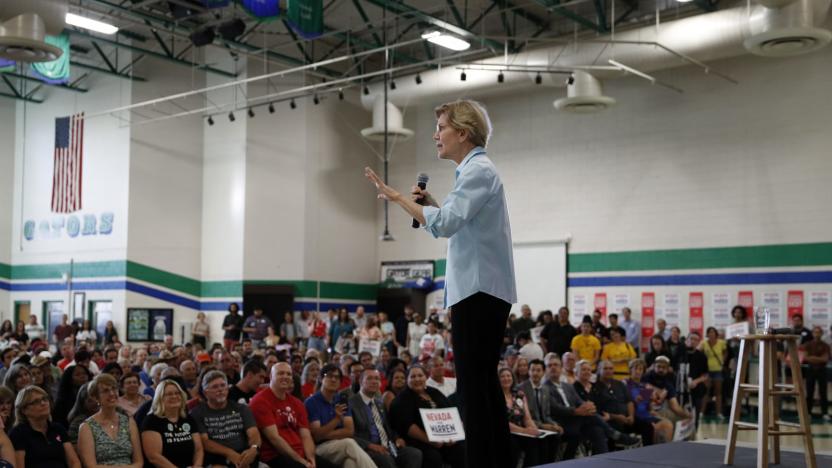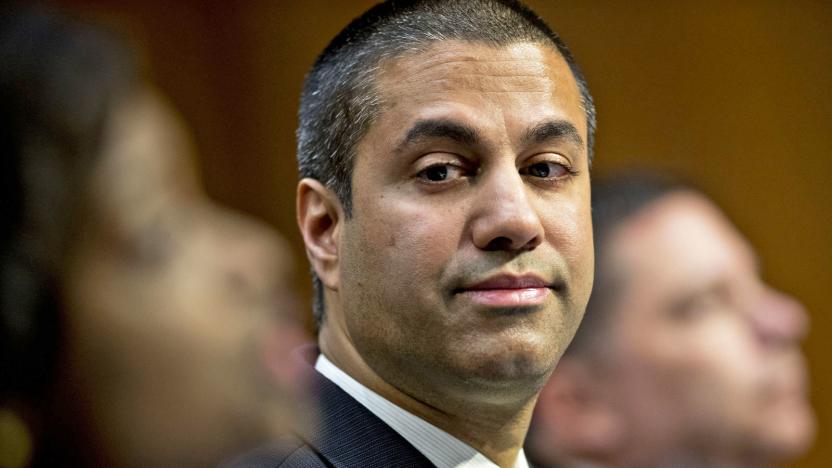digitaldivide
Latest

Microsoft plans to bring broadband to 9 million more Americans
Microsoft is teaming up with ISP Nextlink in its latest effort to expand broadband access. They aim to bring high-speed internet to more than 9 million people in Iowa, Illinois, Kansas, Nebraska, Oklahoma and Texas. That total includes around a million folks in underserved rural areas.

FCC chairman Ajit Pai endorses T-Mobile / Sprint merger
The proposed merger of Sprint and T-Mobile is inching ever closer to being complete, after the Department of Justice gave its conditional endorsement last month. Now, Federal Communications Commission chairman Ajit Pai is formally recommending that the agency's commissioners approve the deal. Pai said that after the FCC reviewed the details of the merger, "the evidence conclusively demonstrates that this transaction will bring fast 5G wireless service to many more Americans and help close the digital divide in rural areas."

FCC approves another $137 million to expand rural broadband access
The Federal Communications Commission has approved another $121 million in funding to bring broadband access to rural homes and businesses. It's the fourth round of support following last year's Connect America Fund Phase II reverse auction. The funding, which will be doled out over the next ten years, will help expand high-speed internet access to 36,579 homes and businesses across 16 states.

Elizabeth Warren reveals $85 billion rural broadband plan
Millions of Americans don't have access to high-speed internet connections and despite efforts to bolster rural broadband, there's still a lot of work to be done. Presidential candidate Elizabeth Warren has the issue in mind, and she revealed a proposal to narrow the digital divide.

FCC wants mobile data to count as broadband internet
The FCC under Chairman Ajit Pai is signaling new broadband policy changes that can only be described as friendly to ISPs and hostile to consumers. In a "Notice of Inquiry," a public comment step often taken ahead of rule changes, the commission proposes that both fixed and mobile can be counted as broadband under Section 706 of its rules. That differs from the current standard, developed under Tom Wheeler, that requires timely deployment of both wired and wireless networks in the US.

Trump’s infrastructure proposal includes rural broadband expansion
In a speech this week given at Kirkwood Community College in Cedar Rapids, Iowa, President Trump said that his upcoming infrastructure plan will include expanded broadband internet access in rural areas. "I will be including a provision in our infrastructure proposal -- $1 trillion proposal, you'll be seeing it very shortly -- to promote and foster, enhance broadband access for rural America," he said.

FCC stops federal approval of low-income broadband subsidies
When FCC Chairman Ajit Pai froze the plan to include nine broadband companies in the commission's Lifeline program in February, the future of low-cost, government subsidized internet access suddenly seemed uncertain. Now, nearly two months later, Chairman Pai has released a new statement saying that the commission supports including broadband in the Lifeline program, but will put a stop to the federal approvals process for new providers. Instead, it will let individual states decide which service providers should be included.

FCC approves $170 million for New York broadband rollout
The FCC's first action under new Chairman Ajit Pai will direct up to $170 million in federal funding to help ease the digital divide in New York State. The commission voted Thursday to approve the funds as part of the Connect America program, which is designed to invest in broadband deployment and infrastructure in rural and underserved areas.

Study: Americans are ditching home internet for mobile
According to a new study from the US Census Bureau, more and more American households across a range of incomes are relying on mobile internet service as their sole means for getting online. In fact, mobile internet service has reached the point where it now "appears to be competing more directly with wired internet connections," writes Giulia McHenry, Chief Economist of the Office of Policy Analysis and Development.

FCC expands Lifeline to help low-income Americans afford internet
Today the FCC voted 3-2 to approve expanding its Lifeline program that has subsidized phone and prepaid wireless access for low-income Americans since the 80s, so that now it covers internet access too. The $9.25 household subsidy is paid directly to service providers, and now it can be applied to standalone internet access, or bundled voice/data service. There are requirements for the services provided, like a minimum 150GB monthly usage cap, as well as minimums for mobile broadband usage and cellphone voice minutes.

NYC commits $70 million toward universal broadband
In an ambitious effort to close New York City's digital divide, the De Blasio administration has announced that it's going to spend $70 million bringing high-speed internet access to the city's residents. An estimated 22 percent of New Yorkers overall lack a home internet connection (with that number jumping to 36 percent for the poorest residents), which significantly impacts their social mobility, according to the mayor's office.

Google search trends highlight America's digital divide
While the rest of us were out frolicking in the sun, The New York Times' Upshot blog spent the early part of the summer sussing out which counties in the United States were the easiest and hardest to live in. After a little extra prompting from Google's chief economist, editor David Leonhardt and the Upshot team used Google Correlate to dig into what these groups on either side of the digital divide were searching for online. Some terms -- the like "Oprah" and "Super Bowl" - are searched for by just about everyone. As you might've guessed, though, those search terms ultimately diverge... pretty wildly.

United States gets a National Broadband Map, finds much of its nation doesn't have broadband
The FCC of the Obama administration has been very keen to highlight the fact that many Americans today still aren't riding the information superhighway, a mission of awareness-spreading that was advanced a little more yesterday with the introduction of the National Broadband Map. Mostly the work of the National Telecommunications and Information Administration, this $200 million project provides broadband data for thousands of providers with over 25 million searchable records -- all of which can be visualized in map form, categorized by connectivity type, or downloaded in full to your computer. APIs have been made available for anyone interested in remixing / using the NBM elsewhere, while information updates are promised every six months. In terms of the maps' content, we're still seeing unsatisfactorily wide swathes of broadband-free countryside, but we suppose the first step to fixing a problem is admitting you have one.

Alcatel-Lucent's lightRadio shoves a base station in a box, minimalists cheer
They've been fashioned after palm trees, Christ on the cross, and what look to be Dyson Ball vacuum attachments. But now, Alcatel-Lucent is giving cellphone towers a makeover that might actually stick. The company's new broadband base station solution, known as lightRadio, eliminates the need for cumbersome huts at the base of cellphone towers and packs antennas into a series of 2.5-inch boxes, while simultaneously improving capacity and reducing cost. These so-called radio cubes combine 2G, 3G, and LTE antennas with an SoC for processing, making them small enough to prop up on a lamp post. They're firmware upgradable, and utilize beamforming to more efficiently connect to wireless devices; according to the company, groups of 'em can not only increase broadband capacity by 30 percent, but also cut operation costs and CO2 emissions in half. Clearly, lightRadio makes a compelling case for narrowing the digital divide, but it won't be available broadly until 2012, which means the creative cover ups will just keep on coming. Sorry, JC. [Thanks, Nathan]

FCC will consider 'free or very low cost wireless broadband' service
Did you know there was a Digital Inclusion Summit going on? We already know the FCC isn't best pleased about the fact 93 million Americans are making do without access to home broadband, and this latest event was an opportunity for it to dish some more info on its forthcoming National Broadband Plan. The major obstacles to broadband adoption identified by the FCC were noted as cost, computer illiteracy, and a sheer lack of awareness about the benefits the web offers (outside of cute kitties). The big Plan will be delivered to Congress a week from today, and its suggestions will include the creation of a Digital Literacy Corps, who'll be performing missionary duties among the unenlightened, and the big whopper: a proposal to "consider use of spectrum for a free or very low cost wireless broadband service." Yeah, if you can't jump over the cost hurdle you might as well eviscerate it from existence. Quite naturally, such radical plans have been met with much grumbling opposition, and Business Week reports that it may be years before the full reforms are implemented ... if at all.

Ad & broadcasting company tells government to give everyone HDTV
Being primarily focused on the consumer end of HDTV, we've rarely crossed paths with news from DG FastChannel, but this stopped us in our tracks. Put simply, it's a proposal to turn around some of that analog TV spectrum sale cash and distribute an HDTV to every household in the U.S. that wants one, digital converter box-style (everyone remember how well that worked out?) Considered seriously, we'd assume companies like DG FastChannel and its partners have invested greatly in preparing for HDTV and would love if all their viewers could see it that way, and we can certainly appreciate the idea that watching standard def is fundamentally wrong. Still, new digital divide or not this attention grabbing bit of PR probably has about as much chance of getting high definition in every home as there is of another DTV switch delay in the next three days.






